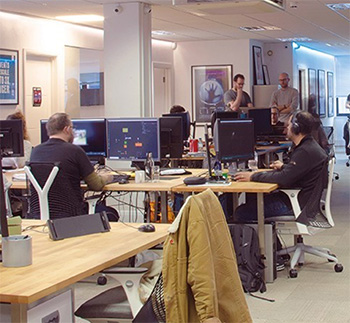Tip #1330: How to Start a VFX Studio
… for Visual Effects
Tip #1330: How to Start a VFX Studio
Larry Jordan – LarryJordan.com
Start with experience, grow organically and pay attention to your pipeline.


This article, written by Ian Failes, first appeared in VFXVoice.com. This is a summary.
Like any business, getting a new visual effects studio off the ground can be a monumental effort. The tasks of hiring talent, setting up pipelines, bidding for work, and managing the intricacies of VFX production are not trivial ones. That said, the wider availability of accessible VFX software and collaboration tools have perhaps made the task of getting started as a studio and delivering shots somewhat easier than ever before.
VFX Voice asked the founders of four relatively new visual effects studios – CVD VFX, Mavericks VFX, Outpost VFX and Future Associate – how they began as independent operations, how they took up often unexpected opportunities, what hurdles they had to overcome to get their studio going, and what advice they had for others who might be looking to start their own VFX company.
The one constant among the studios VFX Voice spoke to is that they all began as startups by visual effects supervisors who had already gained experience elsewhere. Brendan Taylor, for example, started Mavericks VFX in Toronto in 2011 after working for several years with MR. X.
“When we were just compositing, it was fine,” states Taylor. “The real challenge came when we introduced 3D. Any inefficiencies we had with 30 artists were going to be doubled with 60 artists. And one of my senior artists shared with me that experienced VFX artists are very concerned about the pipeline of the company they go to. If it is an inefficient pipeline, and they have to work harder at doing small tasks, they can’t spend as much time working on their craft, and they hate it.”
Asked what his main piece of advice would be to others thinking of starting a VFX studio, Taylor identifies advice he received from another visual effects industry member – that he should straight away engage a great team of lawyers. “When you get into the legal and business affairs of DreamWorks and Disney,” says Taylor, “it can be daunting and scary. We could have saved a bit of money to go with a smaller law firm, but there’s something to be said for the letterhead. ”
The article provides in-depth interviews, images and links.


Leave a Reply
Want to join the discussion?Feel free to contribute!